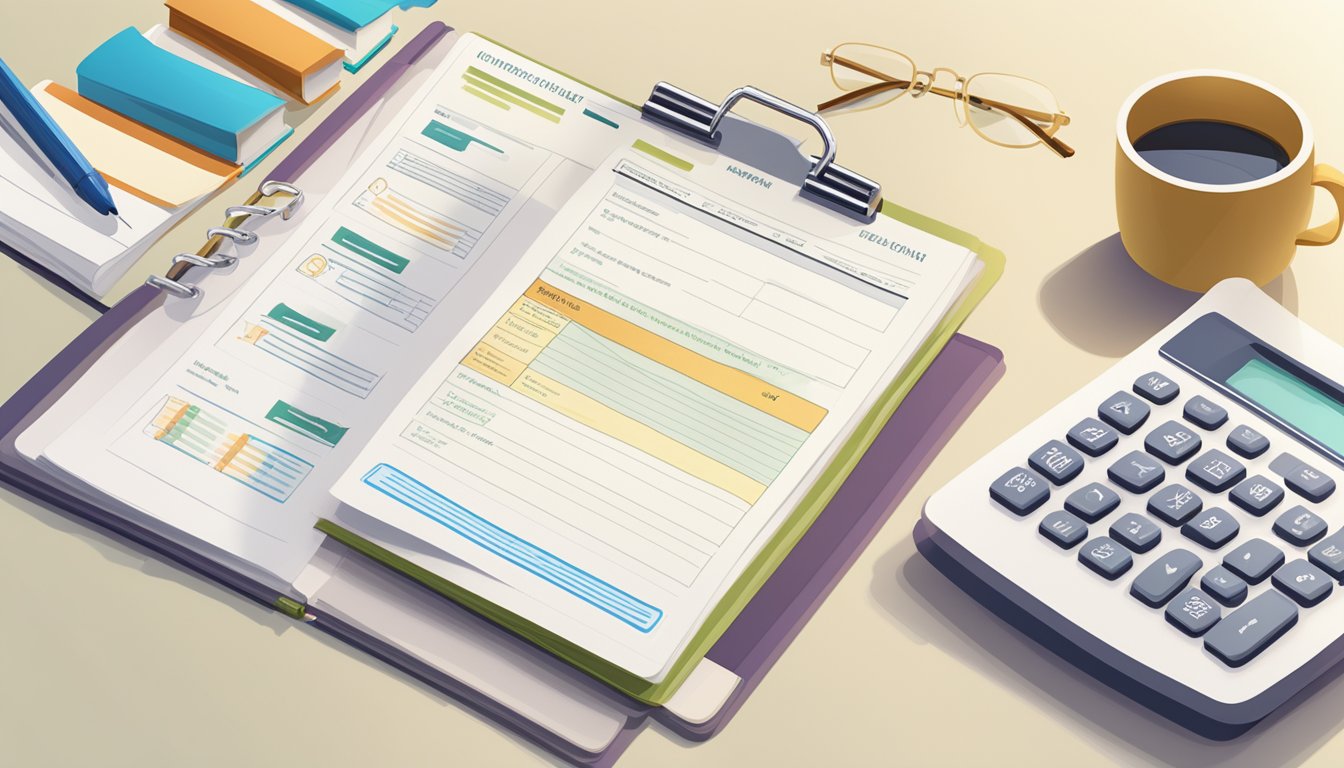Starting a new business is an exciting venture, but it can also be a challenging one. One of the biggest challenges that you may face is securing financing to help you get your business off the ground. A new business loan is a great way to get the funding you need, but before you can apply, you need to meet certain eligibility criteria.

Eligibility criteria for new business loans vary depending on the lender, but some common requirements include having a solid business plan, a good credit score, and a certain amount of business experience. Lenders want to be sure that you have the ability to repay the loan, so they will also look at your financial statements and cash flow projections.
Applying for a new business loan can be a complex process, but being prepared and understanding the offer and repayment terms can help you make informed decisions. By gathering all necessary documents, meeting the eligibility criteria, and carefully reviewing the loan offer, you can secure the financing you need to grow your business.
Key Takeaways
- Eligibility criteria for new business loans vary depending on the lender, but common requirements include a solid business plan, a good credit score, and a certain amount of business experience.
- Lenders want to be sure that you have the ability to repay the loan, so they will also look at your financial statements and cash flow projections.
- Being prepared and understanding the offer and repayment terms can help you make informed decisions when applying for a new business loan.
Eligibility Criteria for New Business Loans

If you are starting a new business or expanding an existing one, you will need to secure financing to cover your initial expenses. However, before applying for a new business loan, it is important to understand the eligibility criteria that lenders and government agencies use to evaluate your application.
Basic Requirements for Startups and SMEs
To be eligible for a new business loan, you must first meet some basic requirements. These include being a registered business entity in Singapore, such as a sole proprietor, partnership or private limited company. You must also have at least 30% local shareholding and meet the minimum employment size and annual sales turnover requirements set by the lender or government agency.
Financial Metrics and Business Performance
In addition to meeting the basic requirements, lenders and government agencies will also evaluate your financial metrics and business performance. This includes your credit score, financial statements and business plan. Lenders will want to see that you have a solid financial track record and a clear plan for repaying the loan.
Government-Backed Schemes and Support
There are also government-backed schemes and support available for new businesses in Singapore. These include startup business loans, small business loans and SME loans. These loans are designed to provide financing to businesses that may not meet the strict requirements of traditional lenders. Additionally, Enterprise Singapore provides various government assistance schemes to support the growth and development of new businesses in Singapore.
Overall, securing a new business loan in Singapore can be a challenging process. However, by understanding the eligibility criteria and seeking government support, you can increase your chances of securing the financing you need to start or expand your business.
Applying for a New Business Loan

When starting a new business, you may require financial assistance to help you get started. Applying for a new business loan can be a daunting task, but with the right information, you can make an informed decision.
Understanding the Application Process
To apply for a business loan, you will need to research participating financial institutions and compare their loan options and terms. You will also need to have a clear understanding of the loan amount you require, the interest rates, and the repayment period.
Documentation and Approval
When applying for a business loan, you will be required to provide documentation to support your application. This may include financial statements, tax returns, and business plans. Once you have submitted your application, the lender will review it and make a decision on whether to approve or decline your loan.
Comparing Loan Options and Terms
It is important to compare loan options and terms to ensure that you choose the right loan for your business. Some popular loan options include DBS Business Term Loan, BizMoney, and Temporary Bridging Loan. You can apply for these loans online, and the required documents will vary depending on the loan.
When comparing loan options, you should consider factors such as the loan tenure, interest rates, and collateral requirements. Some loans may require collateral, while others may be unsecured. It is important to understand the terms and conditions of each loan before making a decision.
In conclusion, applying for a new business loan requires research and careful consideration. By understanding the application process, required documentation, and loan options, you can make an informed decision and choose the right loan for your business.
Frequently Asked Questions

What documents do I need to secure a loan for my start-up venture?
When applying for a new business loan in the UK, you will need to provide some basic documentation to support your application. These documents include your business plan, financial statements, cash flow projections, and bank statements. You may also be required to provide personal identification documents, such as your passport or driving license.
How can I determine if my small enterprise qualifies for a pre-approved loan offer?
Many lenders offer pre-approved loan offers to small enterprises that meet certain criteria. You can check your eligibility for these offers on the lender’s website or by contacting their customer service team. Generally, your business must have a good credit history, a sound business plan, and a proven track record of financial stability to qualify for a pre-approved loan offer.
What’s the maximum amount I might obtain for a sole proprietorship business loan?
The maximum amount you can obtain for a sole proprietorship business loan will depend on your business’s financial situation and the lender’s policies. Generally, lenders offer loans ranging from £1,000 to £500,000 to small businesses in the UK.
Are there specific financial criteria my new company must meet for a business loan approval?
Yes, there are specific financial criteria your new company must meet to be approved for a business loan. You must have a good credit history, a sound business plan, and a proven track record of financial stability. Your business must also have a steady cash flow and sufficient collateral to secure the loan.
How quickly can I expect a decision on my business loan application?
The time it takes to receive a decision on your business loan application will depend on the lender’s policies and the complexity of your application. Generally, lenders take between one to four weeks to process and approve business loan applications.
Can you tell me about the interest rates for new SME business loans?
Interest rates for new SME business loans vary depending on the lender, the loan amount, and the loan term. Generally, interest rates range from 7% to 15%. It is important to compare interest rates from different lenders before choosing a loan to ensure you get the best deal for your business.




